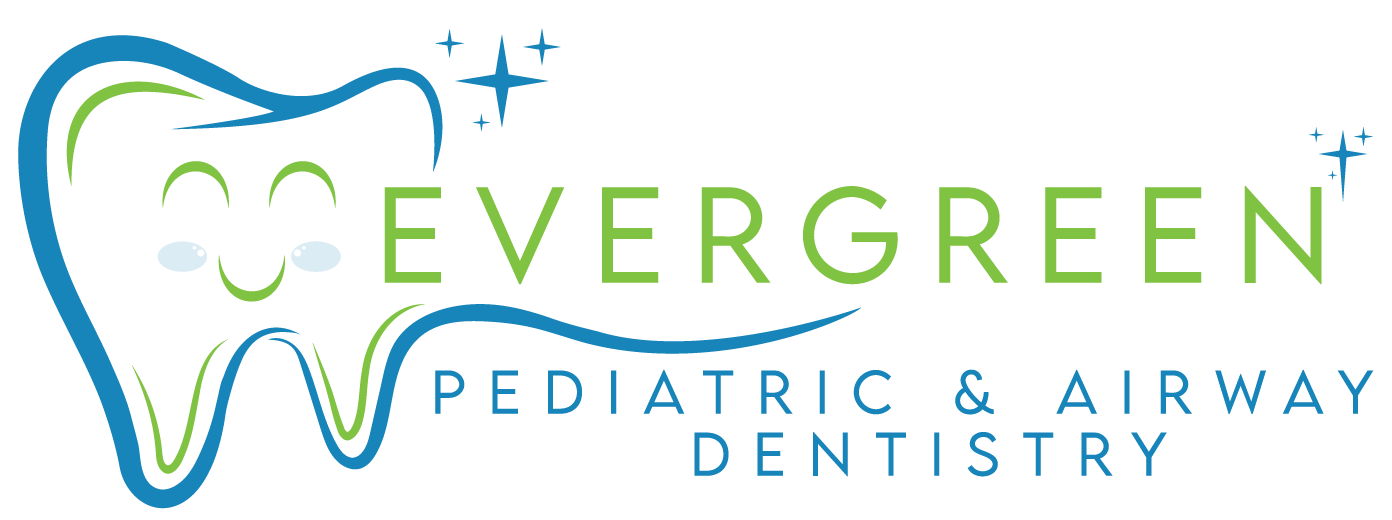Cavity Prevention Tips for Kids: How a Pediatric Dentist Can Help
Picture this: a sweet, innocent smile marred by the sudden onset of dental pain. Did you know that cavities, the tiny holes in teeth caused by tooth decay, are one of the most common chronic diseases in children? In fact, according to recent studies, nearly 1 in 5 children aged 5 to 11 have untreated cavities. This startling statistic highlights an urgent need for proactive dental care. Understanding how a pediatric dentist can help and how to prevent cavities can preserve those precious smiles and save your child from unnecessary discomfort.
The Role of Pediatric Dentists in Cavity Prevention
Pediatric dentists play a pivotal role in cavity prevention for children by leveraging their specialized training to address the unique dental needs of young patients. These professionals are adept at performing preventive care procedures tailored specifically for children. Sealants, a clear or white resin applied to the chewing surfaces of molars, act as a barrier against plaque and food particles, significantly reducing the risk of cavities. Additionally, fluoride treatments administered by pediatric dentists help strengthen tooth enamel, making it more resistant to decay. By focusing on these preventive measures, pediatric dentists can effectively mitigate the risk of cavities and promote long-term oral health.
Regular dental check-ups are crucial in the fight against cavities, and pediatric dentists emphasize the importance of these visits to both parents and children. Through consistent monitoring, pediatric dentists can detect early signs of dental issues and intervene before they escalate into more serious problems. During these check-ups, pediatric dentists educate families on proper oral hygiene practices. They offer guidance on effective brushing and flossing techniques, as well as dietary recommendations that support dental health. By empowering parents and children with knowledge, pediatric dentists help foster a proactive approach to cavity prevention.
Creating a child-friendly environment is another essential aspect of the pediatric dentist’s role in cavity prevention. These specialists understand that a positive dental experience can significantly impact a child’s willingness to maintain regular visits. Pediatric dental offices are often designed with vibrant decor and engaging activities to make young patients feel at ease. The staff is trained to communicate with children in an empathetic and reassuring manner, helping to alleviate any fears or anxieties. By transforming dental visits into enjoyable experiences, pediatric dentists encourage lifelong habits that are crucial for maintaining a cavity-free mouth.

Cavity Prevention For Kids
Common Misconceptions About Cavities
Misconceptions about cavities often lead to misunderstandings regarding children’s oral health. A prevalent myth is that sugar is the only culprit behind cavities. While sugar does contribute to tooth decay, it is actually the acid produced by bacteria in the mouth that causes cavities. These bacteria thrive on sugars and starches, turning them into acids that attack tooth enamel. Pediatric dentists play a crucial role in clarifying this misconception by educating both parents and children about the comprehensive nature of cavity formation. They emphasize the importance of maintaining a balanced diet, proper oral hygiene, and regular dental visits to effectively prevent cavities.
Another common misconception is that baby teeth do not require care since they eventually fall out. This belief can be detrimental to a child’s long-term oral health. Baby teeth serve as placeholders for permanent teeth and are important for chewing, speaking, and maintaining space in the jaw. Ignoring the care of baby teeth can lead to decay, which may affect the development of permanent teeth. Pediatric dentists help dispel this myth by informing parents of the necessity of caring for primary teeth. Through regular check-ups, they monitor the health of baby teeth and provide preventive treatments to ensure their proper development and function.
The notion that brushing alone is sufficient to prevent cavities is another misconception that pediatric dentists address. While brushing is a vital component of oral hygiene, it is not enough on its own. Flossing, fluoride treatments, and dietary choices also play significant roles in cavity prevention. Pediatric dentists educate families on the importance of a comprehensive oral care routine that includes brushing, flossing, using fluoride, and visiting the dentist regularly. By providing this holistic approach to oral health, pediatric dentists help families understand and implement effective strategies to prevent cavities and ensure the overall dental well-being of their children.
Educating Kids on the Importance of Oral Hygiene
Pediatric dentists play a vital role in educating children about the importance of oral hygiene through tailored approaches that resonate with young minds. They utilize engaging methods to teach children proper brushing and flossing techniques, ensuring these habits are both understood and practiced effectively. By demonstrating these techniques in a fun and interactive manner, using colorful toothbrushes and playful models, pediatric dentists help children grasp the correct way to clean their teeth. This practical, hands-on learning experience not only makes the process memorable but also encourages children to take ownership of their oral care routine.
A healthy diet is another crucial aspect of cavity prevention that pediatric dentists emphasize during their educational sessions. They explain how sugary snacks and drinks can lead to tooth decay, using relatable analogies and simple language to convey the impact of dietary choices on oral health. By discussing alternatives like fruits and vegetables, and the benefits of drinking water, these professionals guide children and their parents toward making healthier food choices. This education extends beyond the dental office, empowering families to foster a supportive environment for maintaining good oral hygiene practices at home.
Regular dental visits are highlighted as an integral part of maintaining oral health, with pediatric dentists striving to make these experiences positive and educational. They utilize child-friendly language and interactive tools, such as dental games and storytelling, to alleviate any anxiety and make learning about oral hygiene fun. By creating a welcoming and engaging environment, pediatric dentists help children develop a positive attitude toward oral care and understand its importance. Instilling these habits early in life sets the foundation for a lifetime of healthy smiles, as children who grasp the value of oral hygiene are more likely to continue these practices into adulthood, reaping long-term health benefits.

Child Oral Hygiene
Dietary Habits and Their Impact on Dental Health
Dietary habits play a significant role in children’s dental health, influencing the risk of developing cavities. Consuming sugary and acidic foods can lead to tooth decay, as the bacteria in the mouth feed on these substances and produce acids that erode tooth enamel. Sticky candies, sodas, and even some fruit juices can exacerbate this effect, increasing the likelihood of cavities. Pediatric dentists help families understand the impact of these foods on dental health, offering practical advice on limiting their intake and encouraging healthier alternatives to protect children’s teeth from early decay.
A balanced diet rich in fruits and vegetables offers numerous benefits for children’s oral health. Crunchy fruits and vegetables like apples and carrots stimulate saliva production, which naturally cleanses the mouth and neutralizes acids that can harm teeth. Dairy products provide essential calcium, strengthening the enamel and supporting tooth development. Pediatric dentists emphasize the importance of incorporating these foods into children’s diets, explaining how they contribute to strong, healthy teeth. By educating families about the positive effects of a nutritious diet, pediatric dentists guide them toward making better food choices that support overall dental well-being.
A professional pediatric dentist also play a crucial role in educating families about the importance of hydration and making smart dietary choices for cavity prevention. Drinking plenty of water, especially fluoridated water, helps wash away food particles and bacteria, reducing the risk of cavities. Dentists provide guidance on selecting tooth-friendly snacks and meals, highlighting the benefits of choosing water over sugary drinks. By establishing healthy dietary habits early in life, children are more likely to maintain good oral health as they grow. The long-term benefits of these habits include reduced dental issues and a lifetime of healthier smiles, underscoring the importance of pediatric dentists’ educational efforts in promoting optimal dental health for children.
Fluoride Treatments and Sealants
Fluoride treatments and sealants are invaluable tools in the arsenal of cavity prevention for children, and pediatric dentists are key advocates in their application. Fluoride is a natural mineral that strengthens tooth enamel, making it more resistant to decay. Pediatric dentists often apply topical fluoride in a simple, painless procedure during regular check-ups. This treatment helps to remineralize teeth, reversing early signs of decay and providing an added layer of protection against cavities. By educating both parents and children on the benefits of fluoride, dentists ensure that this preventive measure becomes a staple in maintaining optimal oral health.
Dental sealants offer another effective strategy for cavity prevention, particularly for the chewing surfaces of back teeth where food particles and bacteria frequently accumulate. Sealants are thin, protective coatings applied to the grooves of molars, creating a barrier that prevents plaque and acids from settling in these vulnerable areas. The application process is quick and non-invasive, making it an ideal option for children. Pediatric dentists recommend sealants as a proactive step in safeguarding against cavities, explaining their purpose and benefits to both parents and children. This education helps families understand how sealants play a critical role in long-term dental health.
Incorporating fluoride treatments and sealants into a child’s dental care routine yields significant long-term benefits. These preventive measures not only reduce the risk of cavities but also contribute to lower dental treatment costs over time. Pediatric dentists emphasize the importance of regular dental visits to monitor the effectiveness of these treatments and adjust care plans as needed. By instilling the value of preventive care early on, children are more likely to maintain healthy oral hygiene habits into adulthood. The guidance of pediatric dentists in utilizing fluoride and sealants effectively ensures that children enjoy healthier, cavity-free smiles for years to come.

Pediatric Dentist
Establishing a Routine of Regular Dental Visits
Establishing a routine of regular dental visits is crucial for children’s oral health and serves as one of the most effective strategies in preventing cavities. Pediatric dentists play a pivotal role in early detection of dental issues, often identifying problems before they become severe. Regular check-ups allow dentists to monitor the growth and development of a child’s teeth, ensuring that any potential concerns, such as misalignments or the early signs of decay, are addressed promptly. This proactive approach not only helps maintain the health of primary teeth but also sets the stage for a healthier set of permanent teeth in the future.
Pediatric dentists are not just healthcare providers; they are educators who teach both children and parents the importance of oral hygiene. During routine visits, they take the time to explain proper brushing and flossing techniques, the importance of a balanced diet, and other preventive measures that can keep cavities at bay. By using kid-friendly language and interactive demonstrations, they make learning about dental care engaging and fun. This educational component is crucial, as it empowers children to take ownership of their oral health, fostering habits that will last a lifetime.
Moreover, pediatric dental visits are designed to be positive experiences for children, transforming what could be a daunting task into something enjoyable. The welcoming and child-friendly environment helps reduce any fear or anxiety associated with dental care, making children more likely to return for regular check-ups. These enjoyable experiences create a positive association with dental care, encouraging kids to maintain their oral hygiene routines. In the long term, regular dental visits not only help in preventing cavities and other dental issues but also instill a commitment to oral health that children carry into adulthood, ensuring healthier smiles for years to come.
Actionable Tips for Parents
Pediatric dentists offer invaluable insights for parents looking to prevent cavities in their children, emphasizing the importance of establishing a consistent oral hygiene routine. Parents can start by ensuring that their children brush their teeth twice daily using a fluoride toothpaste and a toothbrush appropriate for their age and size. A soft-bristled toothbrush is generally recommended to protect young gums while effectively cleaning teeth. Flossing should also be introduced once children have two teeth that touch, teaching them the importance of removing food particles and plaque from between teeth. Parents can make these activities fun by playing music, using a timer, or turning brushing time into a playful game to engage children and foster positive habits.
Monitoring dietary habits is another crucial step in cavity prevention. Pediatric dentists advise limiting sugary snacks and drinks, as they contribute significantly to tooth decay. Instead, parents should encourage a diet rich in fruits, vegetables, dairy, and whole grains, which support overall dental health. In addition, promoting water as the primary beverage helps rinse away food particles and keeps the mouth hydrated. Parents can involve their children in meal planning and grocery shopping, teaching them about healthy choices and the impact of nutrition on oral health. This involvement not only educates children but also empowers them to make better dietary decisions.
Parents play a vital role in setting a good example and creating a supportive environment for maintaining oral health. Demonstrating good oral hygiene habits and regular dental visits themselves can significantly influence children’s attitudes toward dental care. Scheduling and attending dentist appointments together can alleviate any anxiety children might have, making the experience more familiar and less intimidating. By fostering a positive attitude towards dental care and reinforcing its importance, parents help instill lifelong habits in their children, leading to healthier smiles and a reduced risk of cavities.
Conclusion
Preventing cavities is a collaborative effort between parents, children, and pediatric dentists. Early intervention and education are paramount in fostering lifelong dental health. By understanding the role of pediatric dental care and implementing practical tips, parents can help their children maintain healthy, cavity-free smiles. Don’t wait—schedule a visit with a pediatric dentist today to pave the way for your child’s bright dental future. So, it is essential to establish a routine of regular dental visits for children and follow the guidance of pediatric dentists in maintaining their oral health. With proper care and education, parents can help their children develop healthy oral hygiene habits that will last a lifetime. Let’s work together to keep our kids’ smiles bright and healthy. Remember, prevention is always better than treatment when it comes to cavities! What are you waiting for? Schedule your child’s next visit with a pediatric dentist today!
Evergreen Pediatric Dentistry
https://www.google.com/maps?cid=14720788683151219551
12910 Totem Lake Blvd NE #103, Kirkland, WA 98034, United States
(425) 814-3196
https://evergreenkidsdentist.com/


